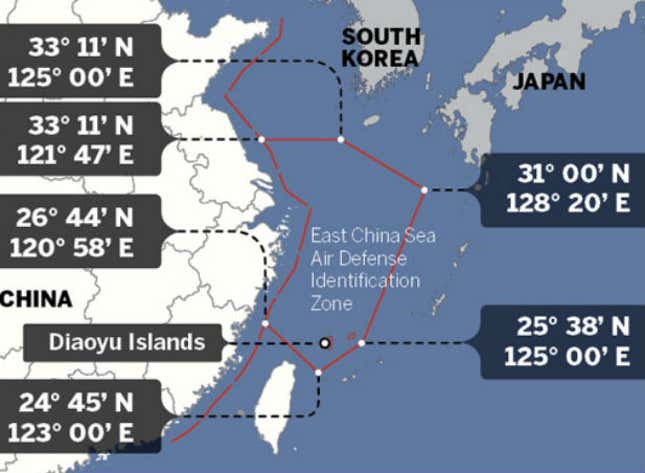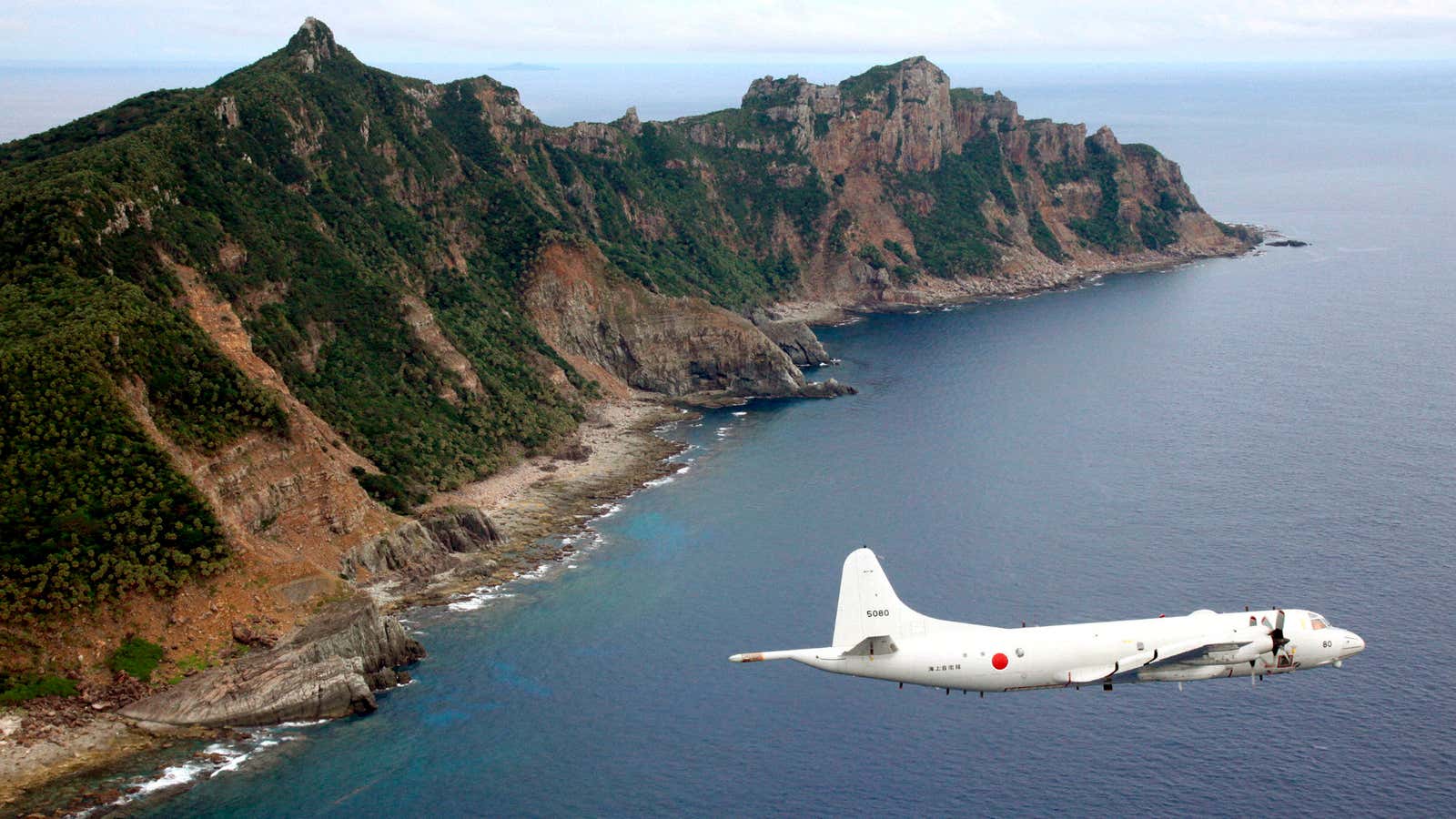Days after China unexpectedly expanded the airspace where it insists on controlling military air traffic into disputed international waters, the US flew two long-range B-52 bombers through on a “routine training mission,” ignoring China’s new Air Defense Identification Zone.
Which raises the question: What exactly was China expecting to accomplish with this controversial move, especially at a time when tensions had been decreasing between the People’s Republic and its fellow disputants, Japan and South Korea?

The policy appears to be a concession to Chinese nationalists who want Beijing to push harder in its dispute with Japan over the Diaoyu/Senkaku islands and potential undersea oil nearby. Staking a claim on military air traffic in the area is one way to establish the “facts on the ground” if international arbiters take up the case. The obvious fear voiced by everyone else involved is that this raises the possibility of some kind of aerial confrontation gone wrong, along the lines of 2001’s Hainan incident.
That incident involved a US spy plane colliding with a Chinese fighter jet, killing the pilot and leading to the capture of the US plane and its crew. While the issue was defused diplomatically after 10 days, it was a setback for US-Chinese relations. And while fault has never been determined, it’s fairly clear it was an accident. China’s new policy could lead to more accidents. But the situation would be far worse if leads to actual conflict—as when Japan mobilized F-15s on Saturday to intercept Chinese spy planes, which turned back without engagement.
That raises the bigger problem for China: The move could backfire. For one, failing to live up to its policy could weaken its claim. Defense experts wonder if China even has the capability to monitor and enforce the identification zone, noting that the US B-52s who entered it today are old, slow and not stealthy at all. Even worse for China is that its decision led the US to issue several statements that could read as dismissing China’s claims to sovereignty over the islands. While the US is obviously sympathetic to its allies in South Korea and Japan, diplomats had thus far maintained formal neutrality on the question of the islands. Now, that may change.
